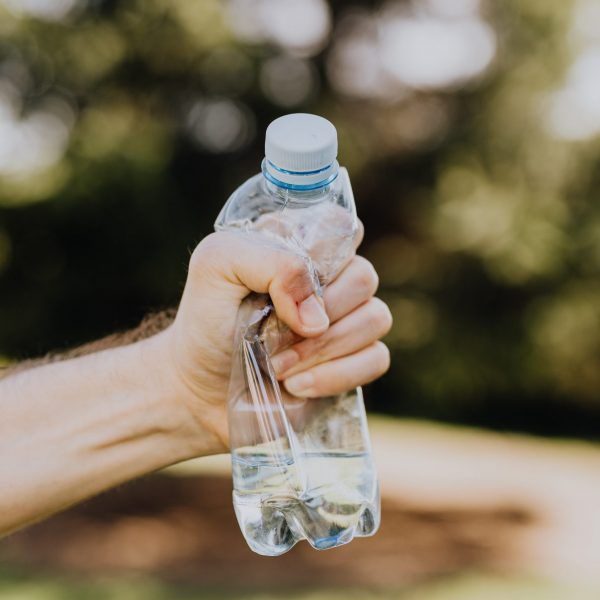Two things are clear about phthalates and your fertility health: One, they are everywhere, and two, they are controversial! Particularly controversial is the link between phthalates and fibroids. Phthalates are a group of chemicals that are found in many everyday modern products. They’re found in floor and wall coverings, certain detergents, plastic food packaging, pharmaceuticals, lubricating oils, and personal care products like shampoos, soaps, hairspray, perfumes, and fragrant health products. Phthalates are even found in many of the plastic water bottles you might be drinking out of every day.
There is a lot of evidence to suggest that phthalates are endocrine disruptors, meaning they cause problems with hormone balance. Many research articles indicate that phthalates, in particular, are estrogen-related disruptors that disrupt the balance of estrogen in the body and the healthy function of reproductive organs. Even so, many expert toxicologists don’t believe they have a significantly negative effect on female reproductive health.
Stark Evidence on Phthalates and Fibroids
One 2018 study published in Fertility and Sterility by researchers for the American Society for Reproductive Medicine, attempted to look at the relationship between phthalates and fibroids, specifically phthalate exposure and the development of uterine fibroids. Uterine fibroids are benign tumors of the uterus that can lead to problems with menstruation, fertility, implantation of an embryo in early pregnancy, and the need for hysterectomies in some women.
Determining phthalate exposure…
So, how do you determine phthalate exposure if it is present in so many everyday products? Well, there are markers for phthalate exposure—chemical markers—that can be found in the urine of people exposed to products containing phthalates. In the George Washington University Milken Institute School of Public Health research study mentioned above, researchers measured the amounts of these markers in the urine of women who had uterine fibroids and compared them to the amounts seen in women who did not have uterine fibroids. The amount of phthalate byproducts was positively correlated with “high uterine volume” or thickness.
Fibroids are really common—so common that most women have them, even though only a fourth of women who have them will have symptoms. Women at higher risks were ethnically African-American*. It’s well-known that estrogens contribute to an increase in the size and thickness of the uterine wall and to the development of fibroid tumors. They also cause abnormal uterine bleeding, preterm labor, and a higher risk for hysterectomies.
The researchers also noted that certain phthalate byproducts, called DnBP and DEHP, disrupt estrogen signaling pathways in laboratory animals, making them endocrine disrupting chemicals. While this phthalates and fibroids research study was small (with just 50 women in the study), it suggests a correlation between exposure to these estrogenic chemicals and the presence of fibroid tumors of the uterus.
What to do about Phthalates
Phthalates are well known to leach out of plastic products and other products, able to enter the human body through inhalation, through the skin, and through ingesting phthalates in food products, such as food that has been microwaved in plastic containers or packaging. The trouble is that they’re so prevalent in our time that it is hard to avoid them altogether.
According to the National Institute of Environmental Health Sciences (NIEHS) at the National Institutes of Health (NIH), widely used phthalate compounds and their metabolites are:
|
|
Take action!
Because these are known endocrine disruptors, you should avoid phthalate exposure whenever possible, especially if you’re female, have fibroids and are worried about your reproductive health.
- Stay away from soft plastic bottles or use only plastics that are phthalate-free, which isn’t the same thing as “BPA-free”.
- Make time to research products and read product labels.
- Don’t microwave food in plastic containers and rethink your relationship with cosmetics, hairsprays, and even nail polish (which also contains phthalates).
- Use glass containers when available and don’t leave food packaged in plastic in their original packaging for longer than necessary.
- Make your own food from whole, natural foods you get from a farmer’s market or your own garden.
Are you looking for more easy ways to live chemical and xenohormone free? Learn additional tips from our guide Tips for Living a Fertility-Friendly Lifestyle.
My final thoughts…
Just keep plastics out of your life if you can. Do your best to avoid phthalates! There aren’t established blood or urine tests for phthalates outside of research circles. You simply need to be vigilant about looking for phthalates in your home environment and avoiding them if you can.
*Fibroids are two to three times more likely to develop in African American women compared to any other ethnicity. In one case study highlighted in the New England Journal of Medicine, Elizabeth A. Stewart, M.D., of the Division of Reproductive Endocrinology and Infertility at the Mayo Clinic shares, “The lifetime prevalence of fibroids exceeds 80% among black women…”
- Zota, A.R., Geller, R.J., Calafat, A.M., Marfori, C.Q., Baccarelli, A.A., and Moawad, G.N. (2018). Phthalates exposure and uterine fibroid burden among women undergoing surgical treatment for fibroids: a preliminary study. (Fertil Steril 2019;111:112–21.2018 by American Society for Reproductive Medicine.). Retrieved from https://www.fertstert.org/article/S0015-0282(18)32038-7/pdf
- Phthalates (THAL-ates) The Everywhere Chemical. (Dec 5, 2013) Zero Breast Cancer, formerly Marin Breast Cancer Watch. Retrieved from https://www.niehs.nih.gov/research/supported/assets/docs/j_q/phthalates_the_everywhere_chemical_handout_508.pdf
- Phthalates. (April 19, 2001). Retrieved from https://www.fda.gov/cosmetics/cosmetic-ingredients/phthalates
- Stewart, E.A. (April 23, 2015). Uterine Fibroids. Editor Caren G. Solomon, M.D., M.P.H., Editor. N Engl J Med 2015; 372:1646-1655. DOI: 10.1056/NEJMcp1411029. Retrieved from https://www.nejm.org/doi/full/10.1056/NEJMcp1411029





